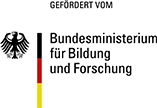The British Medical Association (BMA) is a professional body that represents doctors and medical students in the United Kingdom. The BMA Practice Agreement is a guidance document that provides a framework for professional conduct and ethical practice in primary care settings. It was first published in 2004 and has been revised several times since then.
The BMA Practice Agreement sets out the rights and responsibilities of patients, doctors, and other healthcare professionals involved in the delivery of primary care services. The document provides guidance on a wide range of topics, including confidentiality, consent, communication, complaints, and prescribing.
One of the key principles of the BMA Practice Agreement is the importance of shared decision-making between patients and healthcare professionals. This means involving patients in decisions about their care, ensuring that they have access to all relevant information, and taking into account their values, preferences, and expectations. The agreement also stresses the importance of treating patients with dignity and respect, and providing care that is compassionate, supportive, and non-discriminatory.
Another important aspect of the BMA Practice Agreement is the emphasis on professional development and training. The document recognizes that healthcare professionals have a duty to maintain and improve their knowledge and skills, and provides guidance on how this can be achieved. This includes keeping up to date with changes in medical practice, participating in educational activities, and seeking feedback from patients and colleagues.
The BMA Practice Agreement also sets out clear standards for the prescribing and dispensing of medication. It emphasizes the importance of following evidence-based guidelines, prescribing responsibly, and monitoring patients for any adverse effects. The document also provides guidance on how to manage patients who may be at risk of addiction or overdose.
Overall, the BMA Practice Agreement is a valuable resource for healthcare professionals working in primary care settings. It provides clear guidance on professional conduct and ethical practice, and emphasizes the importance of patient-centered care. By following the principles and standards set out in the document, healthcare professionals can provide high-quality care that meets the needs and expectations of their patients.
